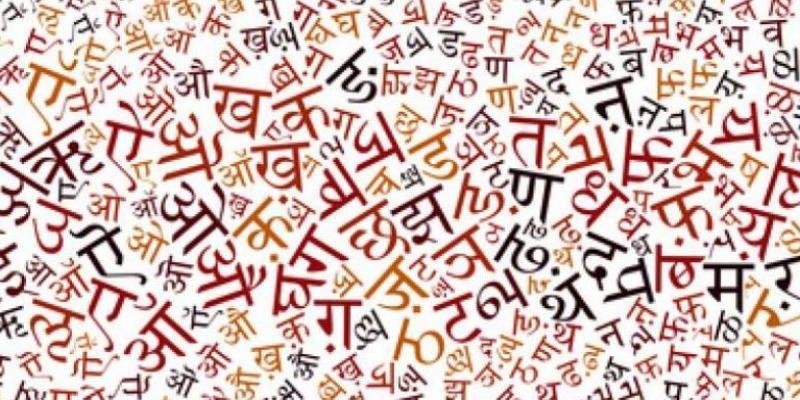Is the Hindi Imposition Struggle Making Its Way Back to Tamil Nadu?

Image Courtesy: Wikimedia Commons
A major political storm which tilted the politics of the state in favour of the Dravidian parties in Tamil Nadu, is back again. The allegation of Hindi imposition at the expense of Tamil has made a comeback after decades. The three-language policy mooted in the National Education Policy (NEP) has played against the ruling camps, with opposition parties demanding that the two-language policy be retained.
On October 8, in the most recent incident in the saga, the Pt. Deendayal Upadhyaya Institute of Archaeology was forced to release a corrigendum on the eligibility conditions for post-graduate diploma admissions by including Tamil. It was done after after a strong objection was raised by S. Venkatesan, MP from the Communist Party of India (Marxist), as soon as the admission notification was published without Tamil being mentioned.
An incident involving the Dravida Munnetra Kazhagam (DMK) MP, K. Kanimozhi, at Chennai Airport, where she was allegedly questioned by a Central Industries Security Force (CISF) personnel why she could not speak in Hindi if she was Indian, sparked protests.
ASI Forced to Publish Corrigendum
The Pt. Deendayal Upadhyaya Institute of Archaeology, run by the Archaeological Survey of India (ASI), published an advertisement for admissions for a post-graduate diploma in Archaeology. Qualifications for the course did not include Tamil. However, it specifically mentioned Sanskrit, Pali, Prakrit, Arabic and Persian.
S.Venkatesan, the MP from Madurai, said the move was highly condemnable. “Those aspirants with a specialisation in Tamil in their under and post-graduate studies would lose their chance to enrol in the course. The ASI has been continuously neglecting Tamil in various other instances as well,” he said.
His protest was followed by a statement from DMK president M.K. Stalin. A letter was written to Prime Minister Narendra Modi by Chief Minister Edappadi K. Palaniswami as well.
After a strong opposition was mounted, a corrigendum was published by the ASI. It added all the classical languages notified by the GOI: Tamil, Sanskrit, Kannada, Telugu, Malayalam and Odia.
Dissolve History Panel
The committee to study ancient Indian culture resulted in another issue where the Centre attracted sharp criticism. While welcoming the ASI corrigendum, Venkatesan demanded the dissolution of the panel.
“I welcome the decision of the ASI to publish a corrigendum by including other classical languages. The injustice has been dealt with now. In the same manner, the committee formed to study ancient Indian culture should also be dissolved”, Venkatesan tweeted.
Many political parties have raised apprehensions over the lack of diversity in the committee. While speaking in the Lok Sabha Venkatesan had said: “A 16 member committee has been constituted by the government of India to study Indian culture. The committee lacks diversity. There are no south Indians, north-east Indians, minorities, women or Dalits in the committee. But, a leader of a caste group is included. Is there no India below the Vindhyas?”
Similar demands were raised by DMK, the Tamil Nadu CM and the leader of Marumalarchi Dravida Munnetra Kazhagam, among many others. Political parties said the committee could end up studying nothing about the different cultures in the country and favouring the ‘One Nation, One Culture’ propaganda of the sangh parivar.
Issue of Hindi Imposition Makes Comeback
The issue of Hindi dominance cropped up in August, when DMK MP Kanimozhi was reportedly questioned by CISF personnel for not knowing Hindi. The DMK leader questioned the union government’s three language policy. The CISF expressed concern over the incident and said it would rectify such issues in airports.
The issue of the National Insurance Company sending renewal letters to policy holders in Hindi and English has also drawn ire. Venkatesan wrote a letter to the Chairman and Managing Director of the company asking it to include regional languages too.
“You would agree that action of National Insurance Company is not wise even in the angles of both business procurement and winning over the hearts of the clientele. Hence I strongly feel that usage of Hindi in forms may be dispensed with and the same should be made available in regional languages inclusive of Tamil for the benefit of all classes of customers,” the letter read.
The struggle against Hindi imposition has a long history in Tamil Nadu and recent developments have brought the issue into the limelight. The sensitive nature of the issue has made things worse for the Bharatiya Janata Party in the state. Even its trusted ally, the All India Anna Dravida Munnetra Kazhagam had no option but to react to such developments, much to the displeasure of the Centre. The DMK and its allies have become more vociferous following repeated incidents of Hindi imposition and the neglect of Tamil.
Get the latest reports & analysis with people's perspective on Protests, movements & deep analytical videos, discussions of the current affairs in your Telegram app. Subscribe to NewsClick's Telegram channel & get Real-Time updates on stories, as they get published on our website.
























